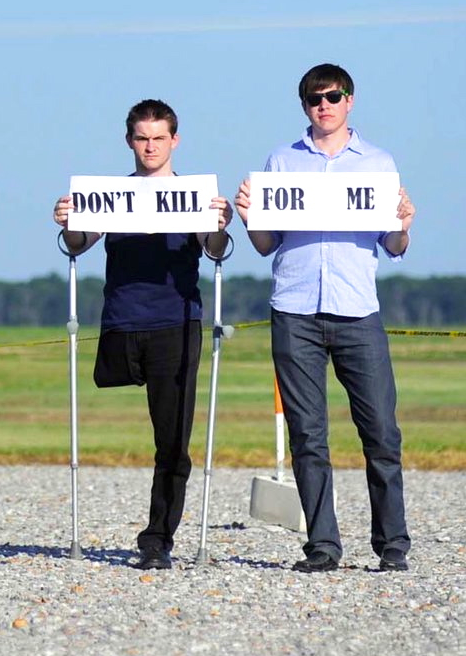Competition for training contracts and pupillages has never been so fierce.
Aspiring solicitors and barristers face cut-throat rivalry, not just from fellow vocational course graduates, but from graduates in previous years, whose qualifications remain valid for up to five years. Hence, with demand for positions at an all-time high, becoming a lawyer for a living requires a demonstrated commitment to the law in practice, as well as in theory.
Legal work experience is the key. In the UK, however, opportunities open to students are, for the most part, restricted to passively observing. Such opportunities are undoubtedly valuable, but can hardly be described as work experience. Therefore, aspirants need to get ‘hands-on’ with real cases. For those who can afford to go, there are opportunities for assisting over-burdened lawyers in the United States.
Death penalty cases

One might assume that capital defence work pays handsomely — after all, what could be more demanding than fighting to save the lives of one’s clients?
In reality, though, capital defence lawyers are the poorest paid in the business, earning less, on average, than the UK minimum wage, while resourced by a tiny fraction of the budget that is available to prosecutors. As a result, capital cases tend to attract sub-standard defence lawyers, who know they can get away with shoddy work because society takes the view that their clients are lucky to be represented at all.
There are, however, a small number of dedicated defenders who believe that the law should be faithfully applied, even in cases involving the worst atrocities. These lawyers are the most noble in the US, but with the best will in the world, one lawyer can only be in one place at any one time. Hence, two charities, Amicus and Reprieve, were set up to assist by sending dedicated law students to help. In 2009, I was fortunate to be one of those students.
After attending two training weekends in London, I was sent by Amicus to assist Glenn Swartzfager at the Mississippi Office of Capital Defence Counsel.
Boarding the plane at Heathrow, I expected to be home in three months — the minimum commitment required. Little did I know that, in fact, I had tasted my last cup of Tetley for the next ten months! I funded this time abroad with personal savings and credit. And being a part-time Open University student, I was able to take my legal studies “on the road.”
In a moment, I will discuss three cases that I assisted with. But first, I think it’s important to say a few words about managing expectations.
As a budding practitioner, you may be wondering what an internship would entail for you. The best answer I can give is: it depends. A lot of ground may be skipped by assuming you are a diligent, reliable individual with a knack for legal research and writing. If so, you can improve your odds of getting away from the photocopier occasionally by taking the following three factors into account.
The time of year is important. If you go during the holidays, you may find yourself working alongside other interns — who, like you, will be trying hard to get a taste of real lawyering. As an Open University student, my holiday occurred when most law students are back in class. This made a big difference. Therefore, if possible, I advise going when other students are unable to. A gap year is probably the best way to achieve this.
Execution dates may be relevant. The lawyer I worked for handled post-conviction appeals. I saw how life at an appellate office is quiet until just before a client’s scheduled death… then things become manic. This is when you could be sent to find last-minute witnesses, or asked to conduct research into possible new legal arguments. Texas kills the largest number of inmates per year, but, for this reason, it attracts the largest number of intern applications. Therefore, you may wish to consider a state other than Texas. Of course, if you are placed with a trial lawyer, execution dates will have no bearing on the work you do.
Building trust is essential. The onus is on you to prove that you are reliable. Many prospective interns say the right things to get the placement, but after arriving, a few find their motivation waning unless the lawyer is constantly patting them on the back. Work hard and have faith that your diligence will be noticed.
Lastly, it is worth remembering that even if your whole internship were to be spent at a photocopier, that would still count as ‘paralegal’ work for your CV, not to mention the glowing reference you could expect from a lawyer who had more time to fight for clients because of you.
I was involved in three cases — those of Gerald Holland and Joseph Burns, in which I helped to write clemency petitions (presented to the State Governor after all legal appeals have failed), and the case of Jeffrey Davis, in which I was sent to find mitigation witnesses.
Gerald Holland

A combination of violent temper, alcoholism and brain damage led Gerald to murder a young girl who stayed at his home. With his execution just weeks away, I was given two issues to investigate.
Firstly, Gerald was pronounced clinically dead at age 13 after falling asleep next to a leaking gas fire. His brain was starved of oxygen for a number of minutes. Tests later found indications of brain dysfunction. The jury was not informed. While brain damage could not excuse what Gerald did, it might have helped the jury to understand why he did it.
Secondly, jurors were overheard making comments which cast a doubt on their ability to decide impartially.
It took two weeks for me and another intern to track-down and interview former jurors, and to research mental deficiency grounds for the clemency petition. The Governor denied it within two hours. Gerald was executed by lethal injection in May 2010.
Joseph Burns

Joseph was known for being a gentle, compassionate person. Then one day, he was dragged into a bad situation without warning, and his fate was sealed forever.
Joseph stopped at a motel with a friend. The friend proceeded to attack the manager and rob the cash stored in the motel’s money box. The pair fled. Unfortunately, agreeing to accept half of the cash would make Joseph “death eligible” when the manager died from violent injuries, which included stab wounds inflicted by a screwdriver.
Everyone, including the prosecution, accepted that it was the friend’s idea to steal the cash, and everyone agreed that it was the friend who struck the first blow. However, the friend gave evidence against Joseph in return for leniency. After blaming Joseph for most of the violence used, the friend is now enjoying freedom. Joseph was not so fortunate.
The jury that sentenced Joseph to die was given no information about his benevolent past, including that he had three loving daughters who suddenly faced growing up without a dad.
It took two weeks for me and another intern to track-down and interview Joseph’s friends, former lovers and other persons to whom he still mattered greatly (including his three children), and to research/write grounds for the clemency petition. The Governor denied it within two hours. Joseph was executed by lethal injection in July 2010.
Jeffrey Davis

When painful events shook his life, Jeffrey resorted to binge drinking and drugs. This tragically culminated in Jeffrey shooting his girlfriend one night, during a drink/drug fuelled argument. Jeffrey fled the scene in her car. The prosecution later argued that this made Jeffrey’s crime a combined murder and robbery, thus making him “death eligible” — even though the car was stolen after the shooting, so the victim’s trauma was made no worse by the theft element.
Within hours, Jeffrey had turned himself in to police. He confessed, claiming to have acted in an altered mental state after injecting cocaine. Jeffrey’s crime shocked the small-town community, who, until then, knew him to be a man of good character.
Twenty years later, I visited his town and was able to gather sworn affidavits from many people who remembered him. A number recalled Jeffrey doing odd jobs for them without pay. Best of all, I found a lady who had worked at the jailhouse where Jeffrey was kept until trial. The lady recalled Jeffrey being allowed out of his cell to wash police cars (which often had guns inside), as well as being trusted to accompany her to the supermarket to help fetch supplies. This proved that Jeffrey could be trusted to serve life in prison, where he would pose no threat to guards or other inmates.
Jeffrey’s death sentence was quashed by the Supreme Court in 2012. He has since accepted an offer of life in prison without possibility of parole.
Want to get involved?
There is information about becoming an intern on the Amicus and Reprieve websites.
Richard Murtagh is an LLM student at the University of Birmingham































